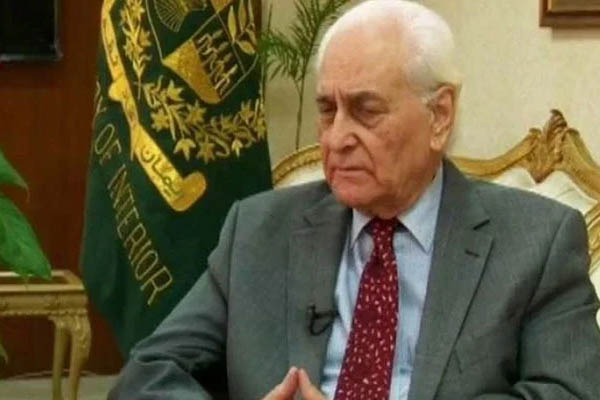The KP Caretaker Chief Minister Muhammad Azam Khan has noted that the people of erstwhile FATA (Federal Administered Tribal Area) have been facing multiple challenges for the last four decades, and now they deserve special attention to bring them at par with other districts and address their long-lasting deprivations. While addressing a graduation ceremony of skills development training for the youth of North Waziristan Tribal District, the Chief Minister told the audience that the caretaker government has been trying to resolve the issues of the merged districts and utilizing all available resources for the development of the disadvantaged region. According to him, the Provincial government was continuously in communication with the Federal government to get legitimate rights of the newly merged districts.
The Federally Administrated Tribal Area (FATA) is the most resource-rich but highly backward and the least developed region in today’s Pakistan, mainly because of its constitutional status and the political system through which the area had been governed over the past seven and a half decades after the independence. There had been no regular local government bodies and the region had been governed by Political Agents under the British colonial law, the Frontier Crime Regulations (FCR) that empowered Political agents and local Maliks to steer the local political, administrative, and legal affairs through their self-wisdom or hand over the case to Girga comprising tribal elders at the local level. Over the years, the Tribal Area became a hub of illegal arms and ammunition, poppy cultivation, and drug production, and turned into a safe haven for criminals, assassins, and transnational terrorists after the government declared the region a base camp for Afghan jihad against the former Soviet Union during the eighties. Later, the global terrorists and their local allies took hostage of the tribal people and waged war agaisnt the state of Pakistan, after the country joined the global War on Terror (WoT) in the aftermath of the 9/11 attacks on the United States. During this time, the FATA was known as the epicenter of terrorism and the most dangerous region in the world and the sane voices called for the mainstreaming of this highly volatile and terror-hit region while a few scholars blatantly labeled FATA as ungovernable and reformable zone.
Historically, the people of Erstwhile FATA suffered the utmost miseries and pain at the hands of local influential, including the Political agents, Maliks, and jirgas under the black law of the FCR throughout the past. Later, those innocent people faced the high-handedness of local and transnational terrorists and experienced displacement and the worst destruction of their businesses and properties during the Security Forces’ operations agaisnt the terrorist outfits in the past decade. Ironically, no past government ever endeavored to assimilate that most unfortunate region into the mainstream to curb terrorism and lawlessness and reduce the sufferings of the people in the region. After long intellectual debates and parliamentary discussions, the government of Pakistan moved for mainstreaming of FATA through the adoption of the 25th and 31st amendments to the constitution and brought the entire region under the writ of the country.
In fact, the law and order situation had not been restored in previously terror-governed tribal districts despite recurrent counter-terrorism operations by the LEAs over the past years, and our valiant military officers and jawans are still embattled with terrorists in border belt areas stretched along with Afghan border from Bajur to South Waziristan. The mainstreaming of the backward and terror-hit region is a huge task that demands a comprehensive development strategy, extensive resources, and continuous attention from the political leadership so the journey of peace and development go hand in hand. The federal government has approved an annual 3% share under the Federal Divisible Pool of the NFC award to implement a 10 years development plan to bring the backward region at par with the rest of the country.
However, there had been persistent complaints from the provincial authorities that the required funds are not being disbursed by the Central government regularly which causes hindrances in social uplift and ongoing development work in the newly merged districts of Erstwhile FATA. Although there are significant financial constraints at the national level, however, the Federal government must prioritize the uplift work in newly merged districts to assimilate those ignored areas into the national mainstream at the earliest. At the same time, the government must encourage the private sector to invest in local industry and mining sectors along with engaging local and global NGOs to work for educational and social development in the region. So, the people of this highly impoverished region could get their basic rights and benefit from the resourcefulness and development of their nation.







